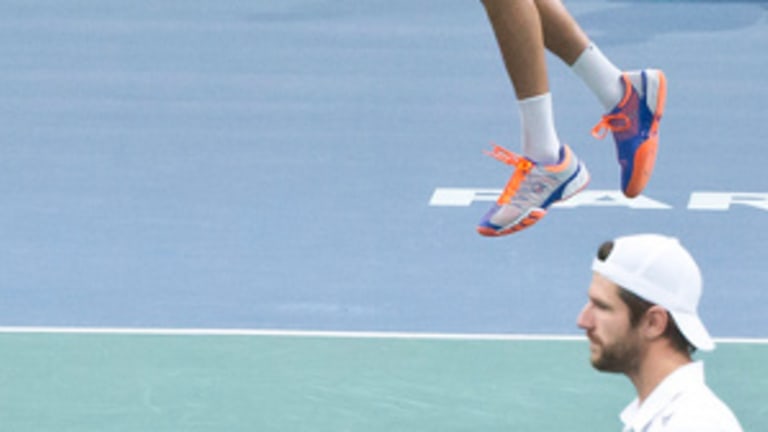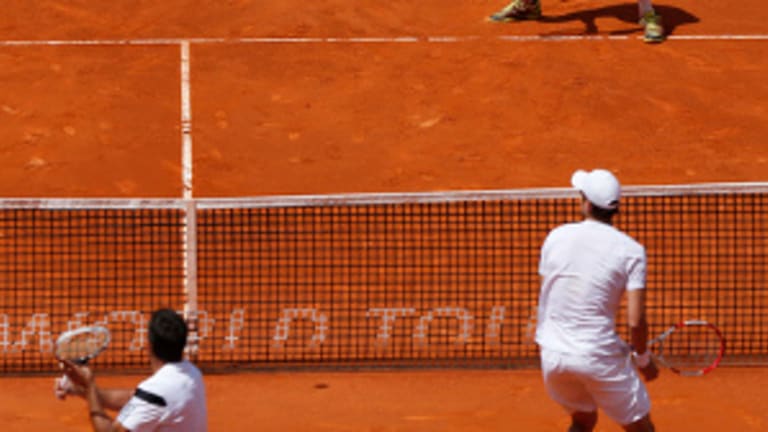Roger Federer isn’t the only surefire Hall of Famer who has extra incentive to win the ATP World Tour Finals. Can you name the other two?
If you didn’t automatically roll your eyes and say, “Bob and Mike Bryan,” you can’t say you’re all-in when it comes to tennis. You may adore “full-flight Federer,” buy a certain brand of underwear just because Rafael Nadal was photographed in it, or perhaps you even cut gluten out of your diet. It doesn’t matter. Your real street cred as a tennis fan hinges on whether or not you can name the No. 2 seeds in the World Tour Finals doubles draw, make an informed comment on whether or not Nenad Zimonjic and Vasek Pospisil truly are the team of the future, or tell me when the Bryans last won this particular title.
The answer to that last question is: 2009. That means that the Bryans are suffering from the longest significant title drought of their long and distinguished careers. Bob and Mike have won every major title, including the Olympic gold medal, since they last won the year-end shootout. It was the first year that the season-ending event came to London’s O2 arena. Since then, it’s become an unfriendly place for the Bryans.
Don’t for a moment think that the Bryans aren’t in a bit of a snit about this. They were already looking ahead last week when the won the Paris Masters, becoming the first players in either singles or doubles to win six Masters 1000 titles in the same year. After the win, Mike said, "We're very happy to win Paris again, especially since we had to beat four quality teams along the way. . . We hope to keep our level high going into the last tournament of the season."
It’s impossible to get through more than two or three sentences about the Bryans without using the word “record,” so let’s get that out of the way. In addition to locking down six Masters finals this year, the Bryans added title No. 102 to their unprecedented haul. And they'll finish the year as the No. 1-ranked doubles team for a record 10th time, no matter what lies in store in London.

